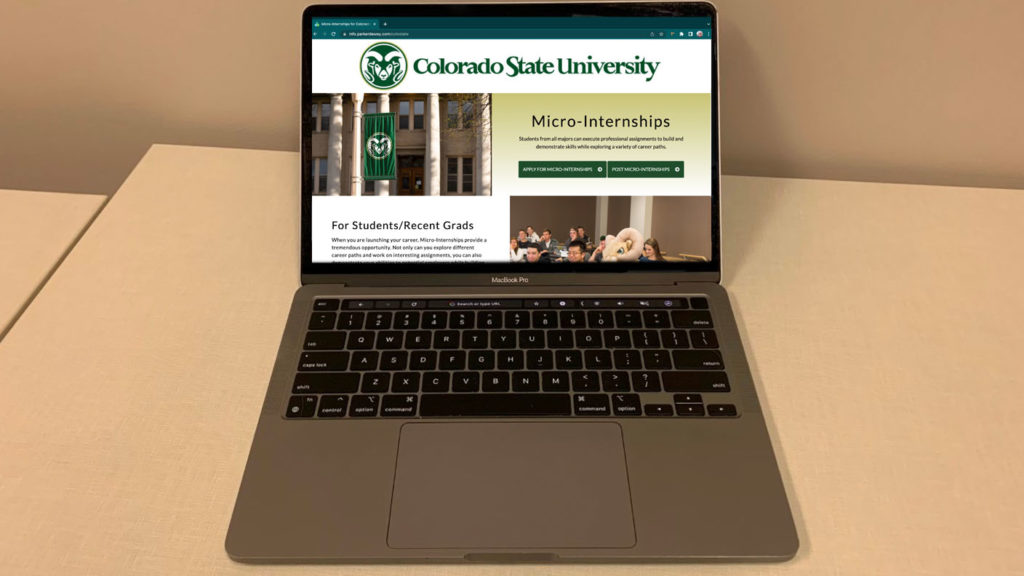
Colorado State University has partnered with technology company Parker Dewey to create a program that allows students to participate in micro-internships, or short-term, paid gigs that they can sign up for with reputable companies on-demand.
“Micro-internships are a new thing,” said Matt Leland, the employer relations manager for the CSU Career Center. “What’s nice about them is it allows people to get experience without giving up a whole summer or whole semester. It’s project-based work. It allows students to try out different things, and it’s quicker and easier to land these than a traditional internship.”
Examples of projects include website development, social media management, technical writing and digital marketing. Most take between five and 40 hours, and are paid somewhere between $200 and $600.
All of the payment involved is managed through Parker Dewey, and the platform includes jobs posted by national businesses as well as gigs from local businesses and alumni who are specifically targeting CSU students. The company touts a 98% success rate.
“What’s cool about this is the gig can be anywhere, since students can choose between remote or in-person,” said Shawn Utecht, the manager of employer relations for the Career Management Center at CSU’s College of Business. “Some companies will use this as a one-time thing, but others could use it as a recruiting strategy.”
And since this is gig-based work, the hope is that it attracts smaller businesses that may not have the capacity to fund a full-on internship program. Down the line, the goal is for employers to post micro-internships that use skills from students in all eight of CSU’s colleges.
Leland said this platform will also benefit students who are unable to complete a traditional internship for a multitude of reasons.
“Thinking in terms of myself, when I was in college, I worked full-time waiting tables because I needed to make money, and I didn’t see any internships that paid more than that,” Leland said. “Also, because it’s a shortened and more direct kind of interview for the job that mainly consists of answering written questions, there’s not as much of a chance for implicit bias to enter the hiring process.
“This means that students with historically-marginalized identities are more likely to participate in micro-internships than traditional ones.”
Leland and Utecht first discussed the micro-internship concept last summer, when they realized the current system had limited opportunities for gig work, and that there were too many opportunities for scammers to take advantage of students.
“This method allows us to protect our students, and it also protects the employers, because if they’re unhappy with the work that’s done, they get their money back,” Utecht said.
The micro-internship program was first launched to CSU students in late March, and now efforts are underway to recruit more and more businesses and alumni to post gigs on the platform.
“We hope this becomes a really great resource that people all across the University can use, be it students, alumni, friends of CSU or employers,” said Brittany Koonce, an employer relations specialist with the Career Development Center in the College of Business.
For more information, go to: info.parkerdewey.com/colostate